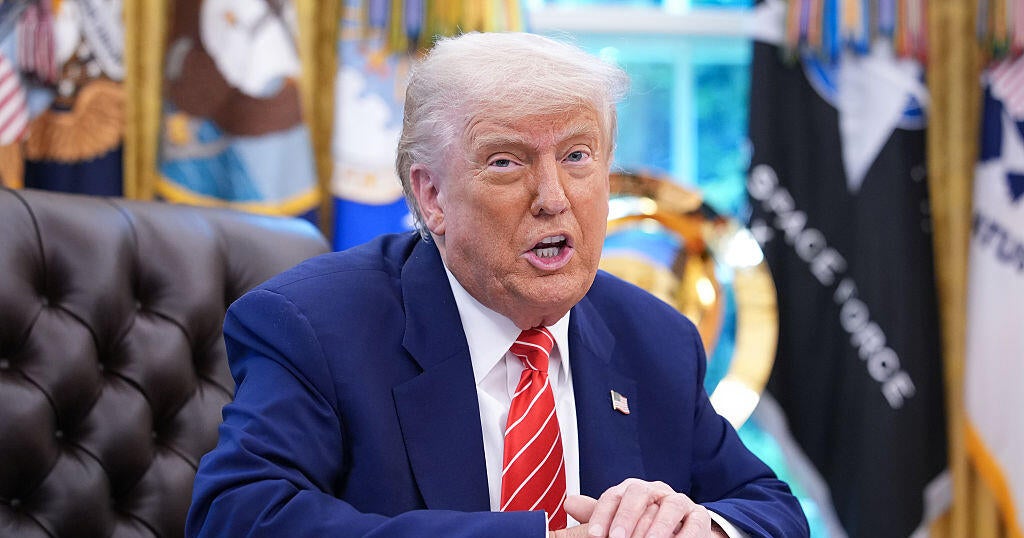On Thursday, newly elected German Chancellor Friedrich Merz is scheduled to meet with U.S. President Donald Trump at the White House. This meeting, pivotal in redefining transatlantic relations, will focus on significant topics such as trade tariffs, the ongoing war in Ukraine, and Middle East tensions. The summit follows Trump’s recently delayed tariffs on imports from the European Union, an issue that has sparked concerns in both the U.S. and Europe.
| Article Subheadings |
|---|
| 1) Overview of the Meeting |
| 2) The Implications of Tariffs |
| 3) Responses from the EU |
| 4) The Broader Context of Global Affairs |
| 5) Conclusion and Future Prospects |
Overview of the Meeting
The much-anticipated meeting between Chancellor Friedrich Merz and President Donald Trump represents a significant moment in their respective political careers. This summit marks their first face-to-face engagement since Merz won the parliamentary vote to become Chancellor last month after a February election. The meeting is scheduled to take place at the White House, where both leaders are expected to address critical issues concerning trade policies and international relations.
Chancellor Merz emphasized the importance of U.S.-German relations, stating, “Our alliance with America was, is, and remains of paramount importance for the security, freedom, and prosperity of Europe.” This indicates the German Chancellor’s commitment to solidifying transatlantic ties while also navigating the complexities of trade negotiations, particularly in light of Trump’s impending tariffs.
The Implications of Tariffs
The tariffs on imports from the European Union, previously scheduled to go into effect on June 1, have been a contentious issue. President Trump announced a drastic 50% tariff, a move that stands to significantly impact both economies. The delay of the tariffs until July 9 provides a window for discussions and potential negotiations, but the pressure is mounting on both sides.
Trade experts argue that such high tariffs could escalate trade wars, affecting not only European nations but also U.S. consumers due to higher prices on imported goods. The ramifications of these tariffs could strain the economic recovery post-pandemic, complicating relationships with key allies like Germany.
Responses from the EU
In response to Trump’s tariff threat, the European Union has proclaimed it is preparing countermeasures to mitigate the impact. Ursula von der Leyen, President of the European Commission, has voiced strong opposition to any tariffs, explaining that such actions would violate international trade agreements and destabilize markets.
The EU’s strategy includes a multipronged approach to safeguard its interests. Economists have stressed the importance of collaborative dialogue over adverse economic measures, suggesting that cooperative trade agreements could yield better outcomes for both parties. This sentiment has echoed in various political statements following the announcement of tariffs.
The Broader Context of Global Affairs
The meeting also comes at a critical time in the global arena, with not only trade but also political tensions regarding Russia’s aggression in Ukraine and conflicts in the Middle East prompting serious concerns. Both leaders are anticipated to discuss these issues alongside the economic factors, recognizing that a collaborative stance is essential for lasting peace and stability.
Recent survey data shows that Trump’s approval ratings have fluctuated with his trade decisions, illustrating the tension between his base’s desire for strong standpoints and the broader economic repercussions that such decisions can entail. Meanwhile, Merz faces pressure domestically as German industry leaders warn against potential supply chain disruptions due to tariffs.
Conclusion and Future Prospects
As both leaders prepare for their discussions, the outcome may very well shape not only the economic relationships between their countries but also influence global trade dynamics moving forward. The relationship between Germany and the United States could be redefined based on how effectively they can navigate through these current tensions.
Looking ahead, analysts suggest that while tariffs may be imposed, successful negotiations could lead to a more harmonious economic relationship centered on shared interests rather than punitive measures. The need for global stability and mutual benefit remains paramount as both nations seek to reposition themselves as influential players on the world stage.
| No. | Key Points |
|---|---|
| 1 | Chancellor Friedrich Merz meets President Donald Trump to discuss trade tariffs and international relations. |
| 2 | A 50% tariff on EU imports, initially set for June 1, has been postponed to July 9. |
| 3 | The EU is preparing countermeasures in response to Trump’s tariff threats. |
| 4 | Both leaders will discuss broader geopolitical issues, including Russia and the Middle East. |
| 5 | The meeting could redefine U.S.-European relations in the context of global trade. |
Summary
The forthcoming meeting between Chancellor Friedrich Merz and President Donald Trump is a critical juncture in U.S.-German relations, particularly in light of the looming trade restrictions. As both leaders confront pressing international issues, their discussions could pave the way for either confrontation or cooperation. The outcome of this meeting may impact not just bilateral relations, but also set the tone for economic diplomacy at a global level.
Frequently Asked Questions
Question: What are the upcoming tariffs proposed by President Trump?
President Trump has proposed a 50% tariff on imports from the European Union, which aims to put pressure on trade negotiations.
Question: How has the EU responded to the tariff announcement?
The EU has indicated plans for countermeasures to address the potential impact of the tariffs and has called for dialogue to mitigate trade tensions.
Question: What broader issues are being discussed during the meeting?
In addition to tariffs, Chancellor Merz and President Trump are expected to discuss geopolitical challenges related to Russia’s actions in Ukraine and conflicts in the Middle East.


